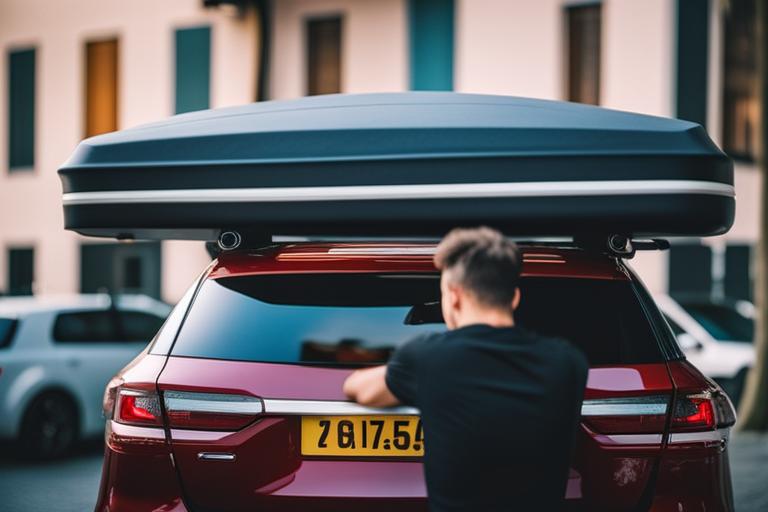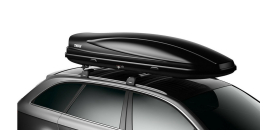
If you’re planning a road trip or simply need more storage space in your car, you may be considering attaching a roof box. However, before you do, you may be wondering: will attaching a roof box make your insurance invalid? In this article, we’ll explore the relationship between roof boxes and car insurance, and provide tips for using a roof box safely and legally.
Attaching a Roof Box and Your Car Insurance: What You Need to Know
- Different types of car insurance policies interact differently with roof boxes
- Attaching a roof box may not necessarily invalidate your insurance
- You can check your car insurance policy for coverage of roof boxes and follow safety and legal guidelines to prevent accidents and insurance issues
Types of Car Insurance Policies
Before we dive into the specifics of roof boxes and insurance, let’s review the three primary types of car insurance policies:
- Liability insurance covers damage you may cause to another person or their property in an accident.
- Comprehensive insurance covers damage to your own car caused by events such as theft, vandalism, or weather.
- Collision insurance covers damage to your car caused by a collision with another vehicle or object.

Roof Boxes and Car Insurance Coverage
So, will attaching a roof box to your car invalidate your car insurance coverage? The answer is not straightforward. While some policies may explicitly mention roof boxes or similar accessories, others may not. However, it’s important to note that all car insurance policies have certain exclusions and limitations, which may affect coverage for a roof box.
Contrary to popular belief, simply attaching a roof box to your car does not automatically void your coverage. However, there may be situations where a roof box could invalidate your insurance, such as if it causes damage to another vehicle or object.
Checking Your Car Insurance Policy
To determine if your car insurance covers a roof box, check your policy documentation for any specific exclusions or limitations related to rooftop cargo. If you’re still unsure, contact your car insurance provider for clarification. Your insurance provider can explain how your policy interacts with a roof box and provide guidance on how to add a roof box to your policy if necessary. In some cases, you may need to pay an additional premium to add a roof box to your coverage.
The Case of Lisa and Her Roof Box
Lisa was planning a family road trip and decided to attach a roof box to her car to fit all their luggage. She checked her car insurance policy and didn’t see anything about roof boxes, so she assumed she was covered.
On the way to their destination, Lisa’s car was hit by another driver who ran a red light. The roof box was damaged and some of their luggage was lost. When Lisa contacted her insurance company to file a claim, she was informed that attaching a roof box without notifying the insurance company could invalidate her coverage.
Lisa was shocked and confused. She had no idea that adding a roof box could affect her insurance. After some research, she learned that some insurance policies require notification and additional coverage when adding accessories like roof boxes.
Lisa’s insurance company ended up covering the damages, but she learned a valuable lesson. It’s important to read your insurance policy thoroughly and understand how it interacts with any accessories you add to your vehicle. It’s also a good idea to contact your insurance company to clarify coverage and add any necessary coverage before hitting the road.

Using a Roof Box Safely and Legally
Once you’ve determined that your car insurance covers a roof box, it’s important to use it safely and legally. Here are some tips to keep in mind:

Safety Considerations
| Type of Roof Box | Pros | Cons |
|---|---|---|
| Hard Shell | – More secure and weather-resistant – Easy to install and remove – Better protection for contents |
– Heavier and bulkier – More expensive – May affect fuel efficiency more |
| Soft Shell | – Lightweight and easy to store – More affordable – More flexible shape for odd-shaped items |
– Less secure – May not be as weather-resistant – May affect fuel efficiency |
| Cargo Bag | – Lightweight and easy to store – More affordable – More flexible shape for odd-shaped items |
– Less secure – May not be as weather-resistant – May affect fuel efficiency – May not protect contents as well |
- Check the weight limit for your roof box and make sure you don’t exceed it. Overloading your roof box can make your car unstable and increase the risk of an accident.
- Make sure your roof box is properly installed and secured. Follow the manufacturer’s instructions carefully and double-check that the box is securely attached to your roof rack.
- Store heavy items at the bottom of the roof box and lighter items on top. This helps keep your car stable and prevents items from shifting during transport.

Legal Considerations
- Check the height restrictions for your vehicle with a roof box attached. Some bridges, tunnels, and overpasses may have lower clearance than your car with a roof box.
- Make sure your roof box does not obstruct your view while driving. This includes the rearview mirror and rear window.
- Make sure all items in your roof box are properly secured. If something falls off your car while driving, you could be liable for any damage or injuries caused.
By following these safety and legal guidelines, you can help prevent accidents and insurance issues related to your roof box.

Pros and Cons of Using a Roof Box
Before you attach a roof box to your car, it’s important to consider the pros and cons. Here are some of the advantages and disadvantages of using a roof box:
Pros
- Additional storage space for your car
- Ability to transport large or bulky items
- Convenience for travelers and outdoor enthusiasts
Cons
- May increase wind resistance and reduce fuel efficiency
- May affect the stability of your car
- May obstruct your view while driving
Frequently Asked Questions
Do I need to tell my insurance company if I add a roof box to my car?
It’s a good idea to check with your insurance company to see if you need to add a roof box to your policy. In some cases, you may need to pay an additional premium to add a roof box to your coverage.
Will a roof box affect the handling of my car?
A roof box can affect the handling of your car, especially if it is overloaded or not properly secured. Be sure to follow the manufacturer’s instructions carefully and check the weight limit for your roof box.
Can I use a roof box on any type of car?
Roof boxes can be used on many different types of cars, but it’s important to check the weight limit and compatibility with your specific vehicle before purchasing a roof box.
Conclusion
Attaching a roof box to your car can be a convenient way to transport additional luggage or gear. While it’s not always clear how a roof box will affect your car insurance coverage, it’s important to check your policy documentation and follow safety and legal guidelines to avoid any issues. By taking these steps and considering the pros and cons, you can make an informed decision about whether a roof box is right for your car and your needs.




